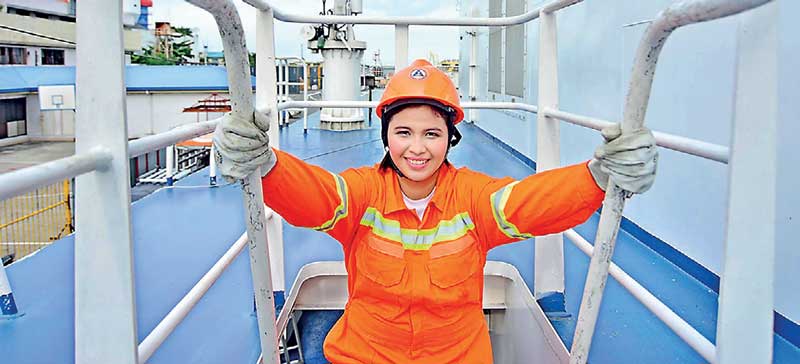Thursday Feb 19, 2026
Thursday Feb 19, 2026
Thursday, 26 September 2024 14:20 - - {{hitsCtrl.values.hits}}

Improving life at sea and attracting the best talent for the industry with a worker shortage looming was one of the hot topics discussed at the Maritime CEO Forum in Singapore. Panellists looked at how to best appeal to the new generation but also how to make life easier for the ones at sea today.
Panellists discussed how working conditions have changed in the post-pandemic era. Most agreed that the focus has shifted a lot more towards the mental health of seafarers and the understanding of how situations like the pandemic or the stress of working at sea can influence crews.
This was stressed by ship management company Synergy Marine Group Co-CEO Swaminathan Hari, who noted that available data shows the number of suicides onboard is at an all-time high today. This, according to him, shows that drastic measures must be taken to secure the mental stability of crews at sea.
However, mental health is only one part of the overall crewing puzzle. People are now looking for a better work-life balance, which South32 Head of Vetting George Mathews said was also partially due to the pandemic. “People don’t want too much pressure. Pre-COVID, people worked from the time they woke up till they went to sleep. Now, people want to be very clear about the time they spend in the office, the time when they spend at home, and the quality of life that they have,” Mathews said.
An audience member gave an example of a master and chief engineer being convicted to 30 years in prison after authorities found cocaine on their vessel, even though no link was found between the two men and the drugs. That brought out the issue of how to attract talent when the criminalisation of seafarers is so rife.
Hari noted a similar case where no illegal substances were involved. His company spent around $ 500,000 and 18 months to get their people out of a Chinese prison after a vessel struck a fishing boat. “Not a lot of companies can spend that kind of money,” he said. “It is something which should not happen and the only way companies can do something is to have strong hearts to fight this.”
Diversity issues within the maritime industry then dominated the discussion.
“My first shift onboard at Cape Lambert was back in 2013. It was on a vessel with 23 crew onboard, all male. They said you’d be lucky if you saw a female,” noted Rio Tinto Marine Operations and Performance GM Hollie Scoon.
She added that certain things like PPE for females, separate female and male lockers on board, and hygiene and sanitary products – among other things – have been rolled out on vessels used by Rio Tinto to make them something people, especially women, actually want to board and work on.
BW Group GM and Group Crewing Activities Head Rajesh Divakaran added that his company has five vessels with over 50% female crew. Mathews remarked that those diversity programs are actually benefitting men as well since it is not “one size fits all”, and that the PPE equipment for women is helping men with short stature equally.
The panel ended the session by noting a variety of problems in getting new talent into the industry. Opening new geographies was one of the potential solutions but, as Hari noted, it takes time and a certain level of education to do it – so that is not a quick fix but rather a long process which takes time and political will.
All of the speakers said that they often hear the same questions when talking to students about working at sea. Most are regarding the difficulties of the work due to a bad image which the industry has amongst younger people.
The panel ended the session by pointing out the biggest areas for upgrading the current system which could lead to talent staying or coming into the industry would be investing in connectivity and onboard internet for the new generation, going to schools and sharing the benefits of working at sea, and the use of shorter contracts.
Summing up the session, which was peppered by many questions from an engaged audience, moderator Diversity Study Group Founder Heidi Heseltine commented: “There were so many interesting takeaways from the session, including how organisations are exerting influence across the supply chain to raise standards for our people in the industry, the various ways of collaborating to share data and best practices, the need for continual investment in seafarers and accessing potential talent much earlier in their education, how companies are developing and supporting our leaders of the future, successful ways of increasing diversity ashore and at sea, particularly female representation, and the need for us all to play our part in sharing the positive stories to bring the industry out of the shadows and to highlight the vast range of dynamic roles and opportunities that it presents.”
(Source: https://splash247.com/maritime-ceo-forum-crewing-conundrum-debated/)